January 8, 2025 | 01:20 GMT +7
January 8, 2025 | 01:20 GMT +7
Hotline: 0913.378.918
January 8, 2025 | 01:20 GMT +7
Hotline: 0913.378.918
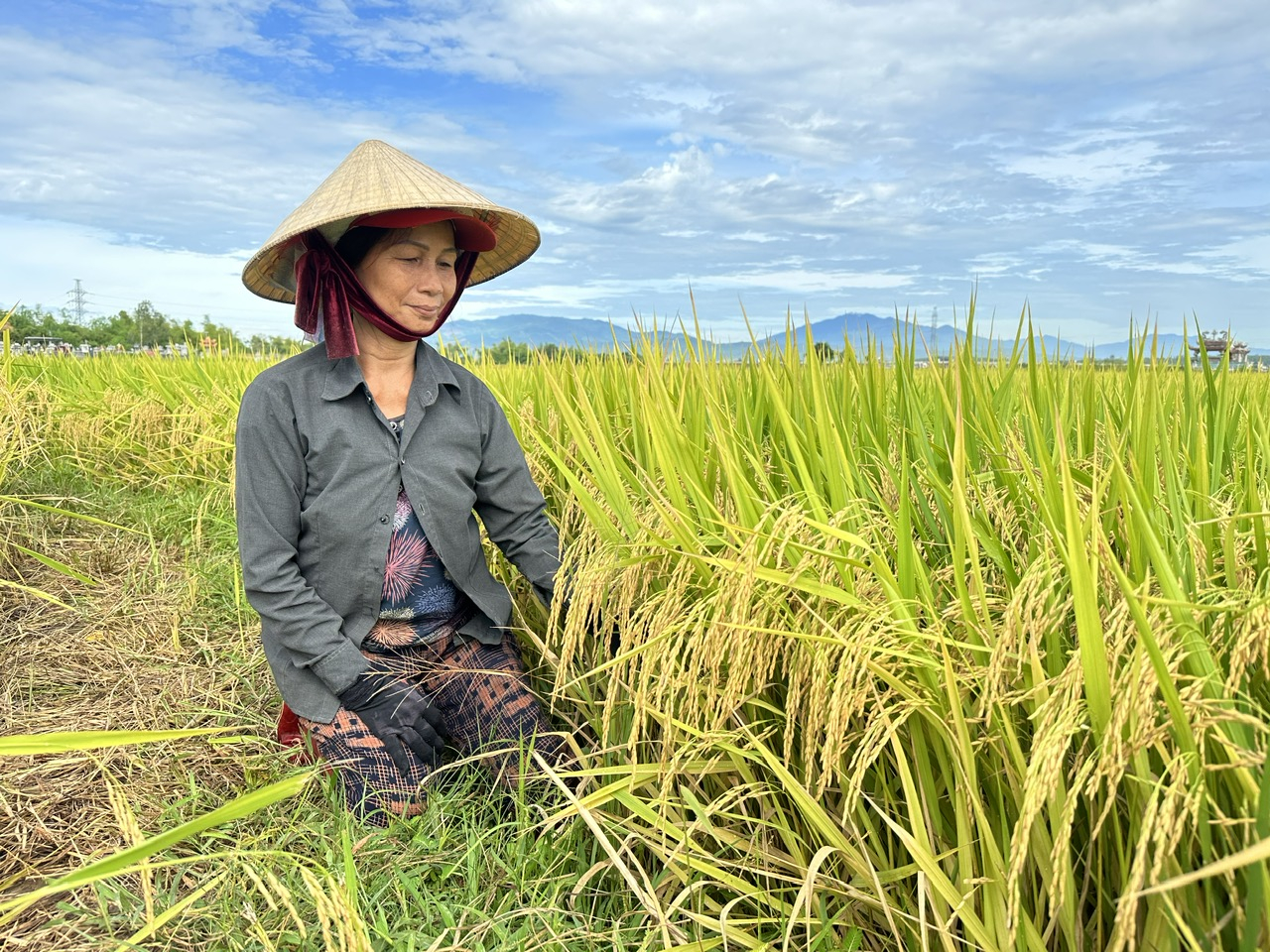
Farmers in the South Central region are excited because this year's summer-autumn rice crop has a great harvest. Photo: L.K.
The summer-autumn rice crop is one of the primary agricultural crops in the South Central Coast, including the provinces of Quang Nam and Quang Ngai. Distinguished from the winter-spring rice crop, the production of the summer-autumn counterpart is notably difficult, owing to the challenges posed by scorching heat, salinity intrusion, thunderstorms, and rainstorms, particularly during the harvest period.
According to the established harvest timeline, the summer-autumn crop extends from late May to early September. During this period, signs of harvest became apparent in various districts, including Duc Pho, Mo Duc, and Tu Nghia in Quang Ngai, as well as Dien Ban and Thanh Binh in Quang Nam. The landscapes adorned with golden, ripe rice fields have put radiant smiles on farmers, driven by the bountiful yield and favorable market prices.
Mr. Nguyen Dinh Ngoc Trang, Director of Pho An Agricultural Cooperative in Duc Pho town, Quang Ngai, confirmed the cooperative's remarkable output of over 350 hectares of rice this season. Despite the challenges posed by high temperatures and scorching weather, the rice plants exhibited a notable proportion of robust grains due to the stable temperature conditions during the ripening phase. Mr. Trang further noted that abundant irrigation water played a pivotal role in achieving this year's good yields, surpassing last year's performance of 50 quintals/hectare to reach 61 quintals/hectare, much to the farmers' delight.
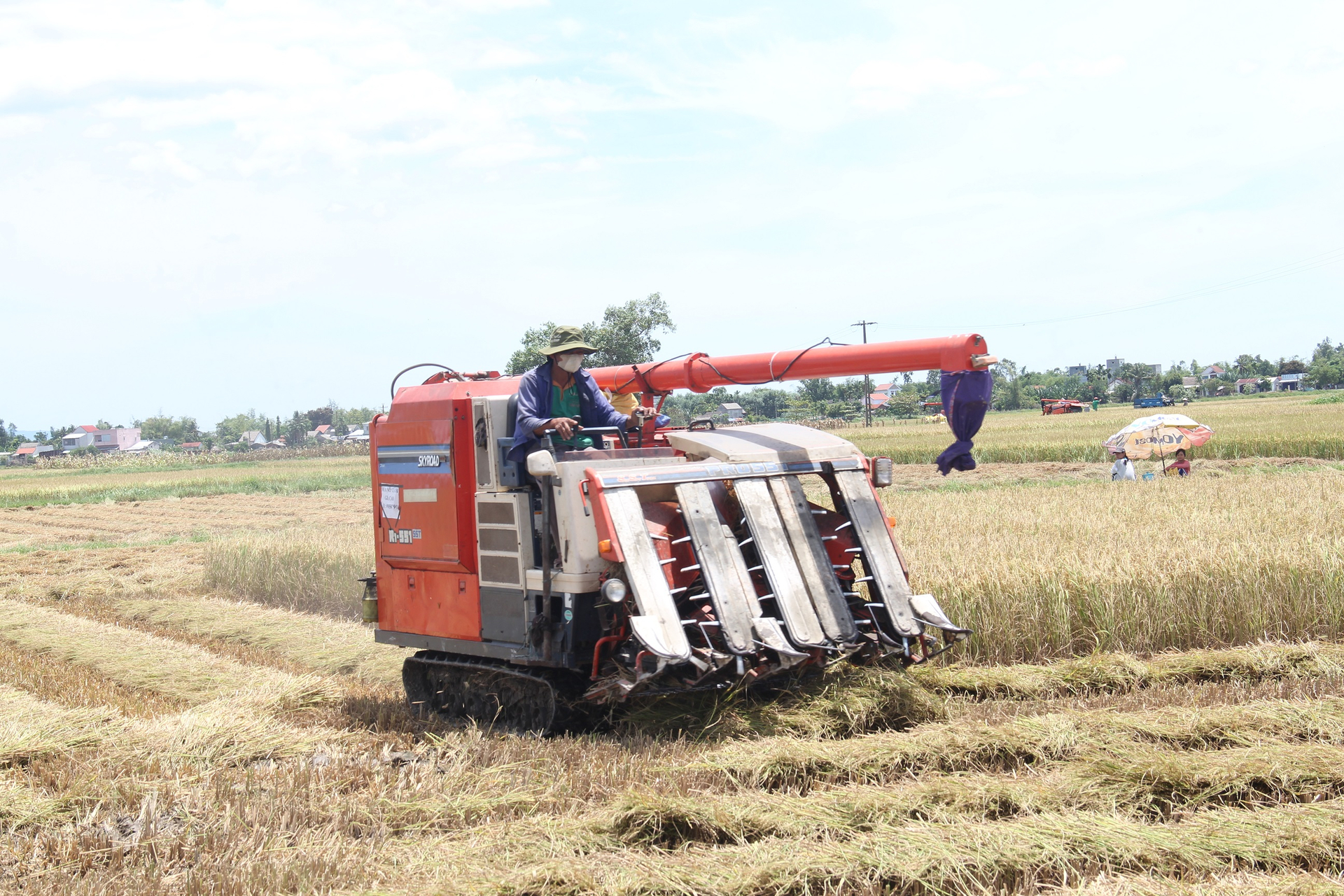
Currently, the South Central provinces are in the midst of the summer-autumn rice harvest. Photo: L.K.
The Department of Agriculture and Rural Development of Quang Ngai province reported that the province dedicated 35,000 hectares to rice cultivation in the current summer-autumn crop. An evaluation of the harvest regions indicated an elevated yield compared to the previous year, attributed to not only favorable weather conditions during the rice flowering stage but also the introduction of suitable and abundant varieties by the agricultural sector of Quang Ngai province.
Mr. Nguyen Quang Trung, Deputy Director of the Department of Agriculture and Rural Development of Quang Ngai province, emphasized the consistent monitoring and preventative measures against pests and diseases, with regular updates provided to farmers every 15 days. Encouragingly, pests and diseases decreased this season compared to previous years. Preliminary statistics across districts, including Binh Son, Tu Nghia, Mo Duc, Duc Pho, and Son Tinh, point to an expected yield of 61 quintals/hectare, surpassing the initial target of 59.5 quintals per hectare set at the start of the crop.
In Quang Nam province, approximately a quarter of the summer-autumn rice crop has been successfully harvested. Overcoming initial challenges posed by adverse weather conditions, water scarcity, and salinity intrusion, the province's rice fields have exceeded expectations.
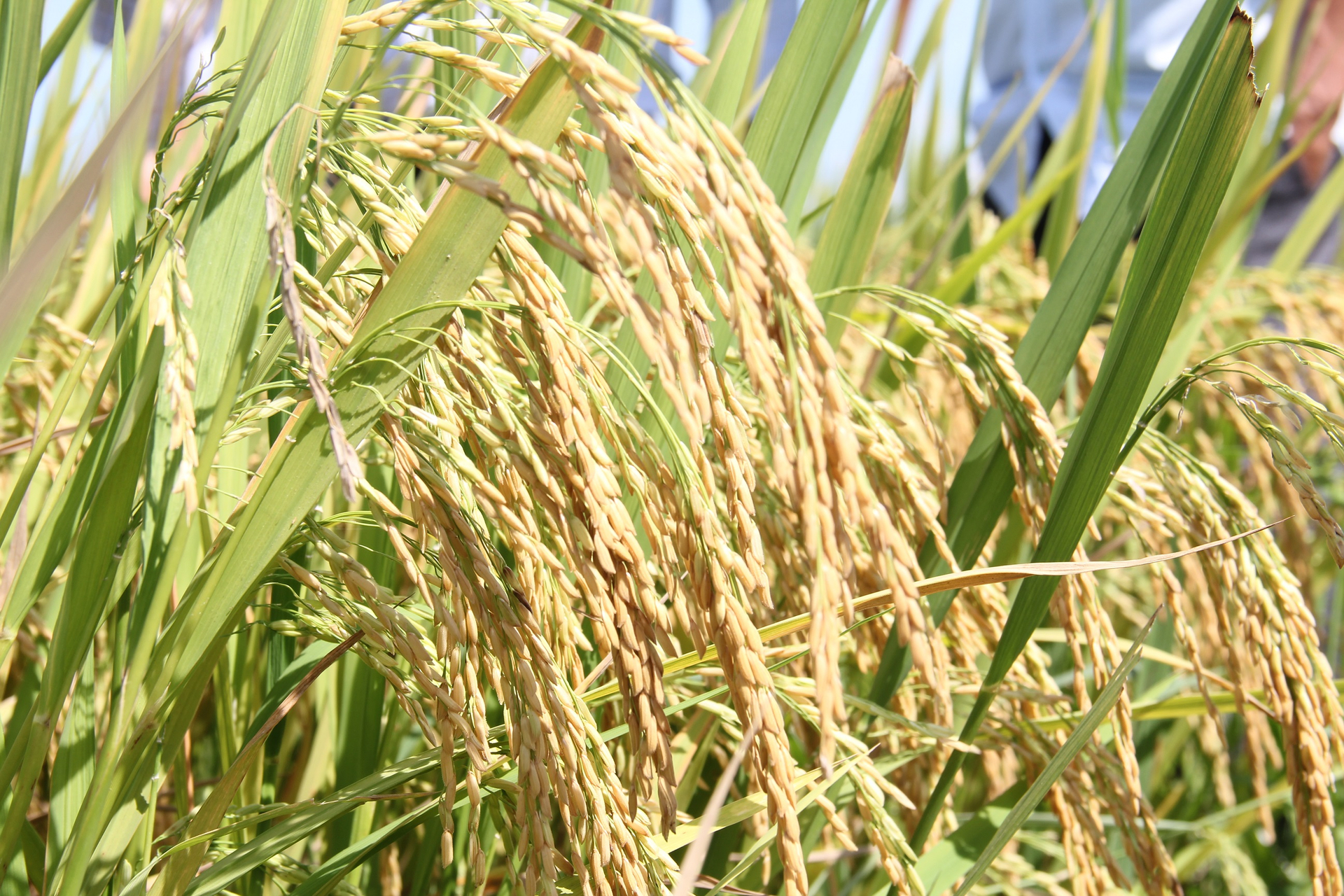
According to assessments of professional agencies and farmers, this year's summer-autumn rice crop has few pests and diseases, and rice blooms in stable weather conditions, so productivity is high. Photo: L.K.
Mr. Nguyen Van Kiet, a resident of Dien Tho commune in Dien Ban town, Quang Nam province, expressed his satisfaction with the progress on his nearly 20-hectare rice field, now adorned with golden hues. He shared that local farmers in the region, including himself, are poised for a successful harvest, boasting even flowering, robust grains, and an expected yield approximately 10% higher than the previous crop.
Mr. Kiet noted, "While the weather conditions this year haven't been entirely favorable, with temperatures soaring between 37 to 38 degrees Celsius and heavy rainfall on July 27 affecting flowering, the crop has encountered minimal pest challenges. Most rice varieties have demonstrated increased yields compared to prior years, with some anticipated to reach up to 75 quintals per hectare."
Of noteworthy excitement is the concurrent rise in rice prices, currently trading at rates of 8,300 to 8,500 VND/kilogram, marking a substantial increase of around 2,000 VND/kilogram compared to the same period last year. This surge in prices has significantly augmented the economic returns of this year's summer-autumn rice crop, thereby enhancing overall economic efficacy.
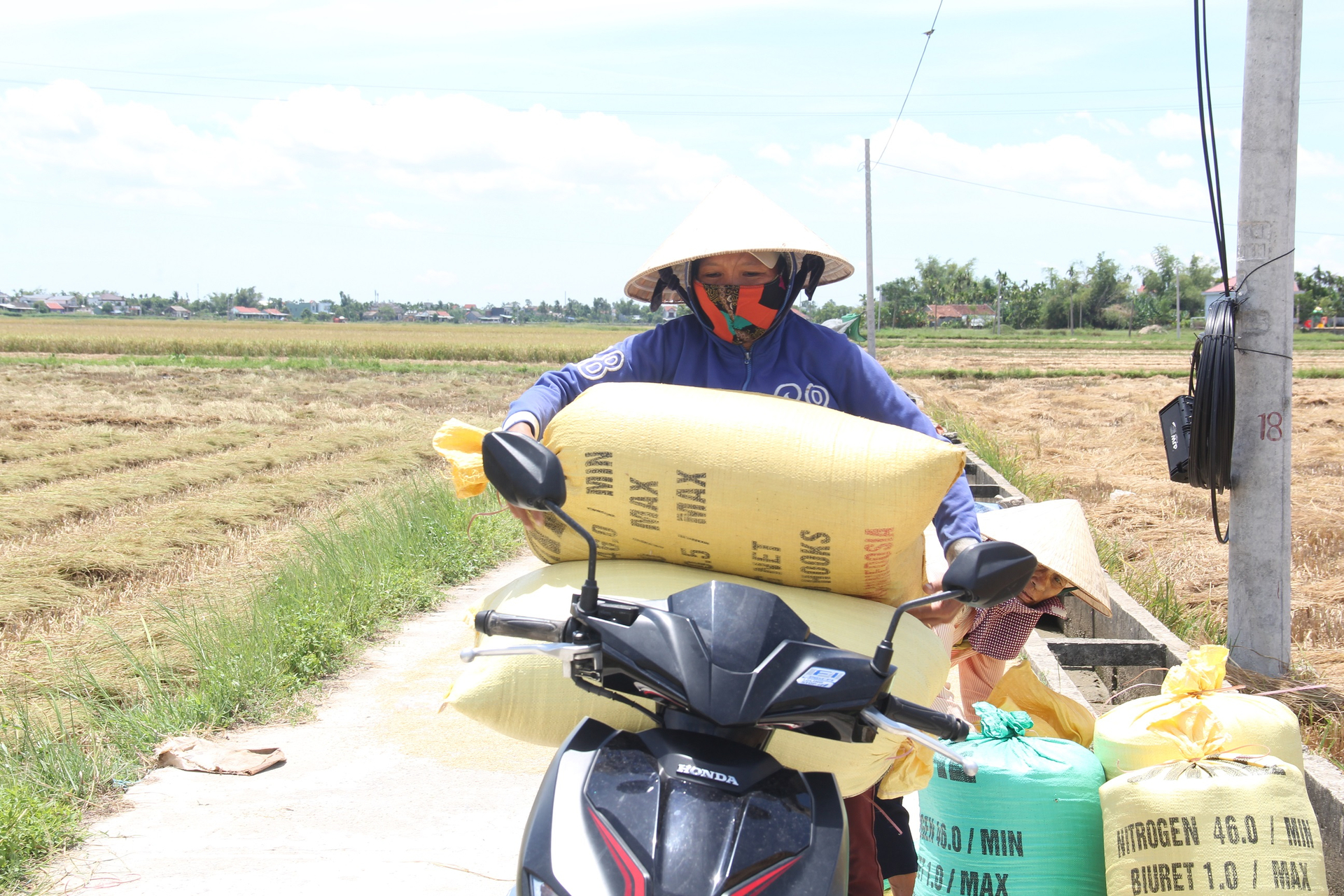
The yield and price of this year's summer-autumn crop in Quang Nam and Quang Ngai provinces are higher than in 2022, so farmers are very excited. Photo: L.K.
According to Mr. Nguyen Xuan Vu, Deputy Director of Quang Nam Department of Agriculture and Rural Development, the entire province is expected to produce nearly 42,000 hectares of rice in the summer-autumn crop of 2023. While certain localities faced initial challenges pertaining to water availability, proactive measures implemented by the provincial agricultural sector swiftly addressed these concerns, ensuring stable production conditions for farmers. The harvest is projected to conclude no later than September 10, with an overall anticipation of higher yields compared to the previous year.
Translated by Linh Linh
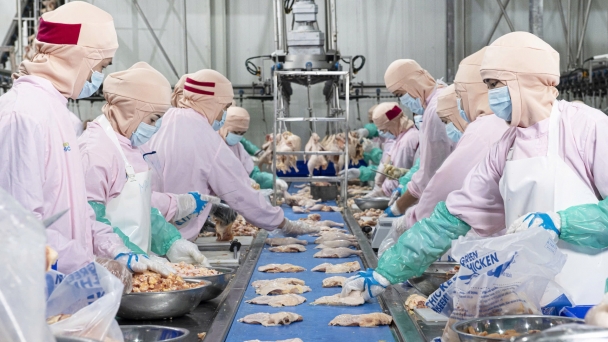
On January 3, the Department of Livestock Production held a conference to review the work in 2024 and deploy the work plan for 2025.
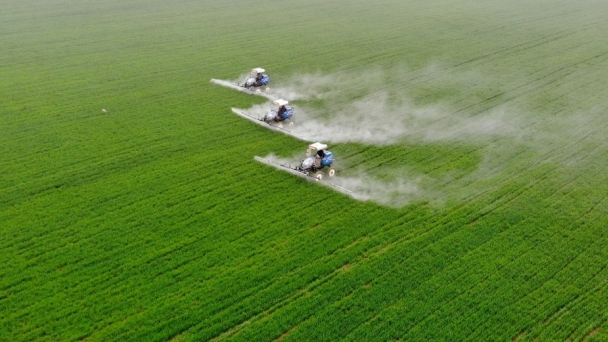
(VAN) According to the Food and Agriculture Organization of the United Nations, crop pests and diseases cause annual yield losses of up to 40 percent, leading to economic damages exceeding $220 billion.
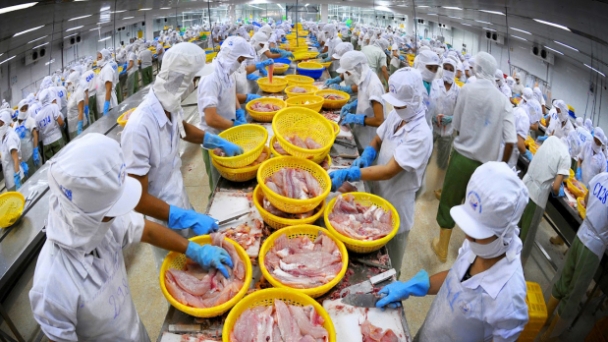
(VAN) Despite numerous challenges, Vietnam's seafood exports in 2024 reached over 10 billion USD, up 12.1% from 2023.

(VAN) The Vietnamese trade counselor in the United States predicts a positive outlook for this market in early 2025 and recommends several solutions.

(VAN) China has approved five gene-edited crop varieties and 12 types of genetically modified (GM) soybean, corn and cotton, expanding approvals to boost high-yield crops, reduce import reliance, and ensure food security.

(VAN) The French Ambassador to Vietnam discussed the necessity of enhancing bilateral and multilateral collaboration to address climate change, particularly in the agricultural sector.

(VAN) On December 30, MARD and the International Livestock Research Institute (ILRI) held a consultation meeting to review the results of the CGIAR One Health Initiative as part of its project completion process.